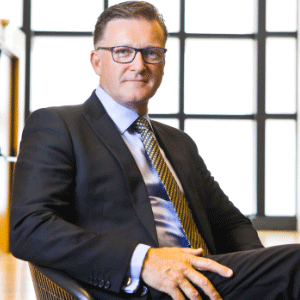THANK YOU FOR SUBSCRIBING

Why Fintech Needs a Human Core
Tim Schaefer, EVP - Client and Digital Experience, Northwestern Mutual


Tim Schaefer, EVP - Client and Digital Experience, Northwestern Mutual
Fintech is one of the largest and fastest growing industries, with new innovations and digital technologies ranging from lending and payments to financial planning constantly being introduced. While technology continues to improve and new digital offerings are developed, people still need something that no technology can currently replace—human empathy.
While some may believe the future of fintech is about going farther in the direction of automated decision-making, I believe it’s about striking an effective balance between technology and human interaction to help people reach financial decisions. At its core, fintech needs to retain a human element in order to deliver financial confidence, not just convenience, to the masses.
Why a “people plus” approach is needed
Even with new technologies, people still believe that a human touch is important when receiving financial advice. According to the 2016 Northwestern Mutual Planning and Progress Study, 87 percent of Americans said the human touch (or human relationship) is a key element in how they prefer to receive financial advice. The appetite for a fully automated solution appears low across all age groups—even, remarkably, for digital-native millennials, with fewer than two in 10 opting for robo-only advice.
That’s because personalization is extremely important when it comes to money. Everyone and every person’s financial circumstances are unique. While data is necessary to create a comprehensive financial plan, an automated system alone cannot understand the impact a major life event (marriage, expanded family, etc.) may have on an individual’s financial circumstances.
Combining technology with human advice
Let’s look at how robo-advice might work. An all-digital approach means a person may enter key information about themselves—age, marital status, children, income, retirement plans, etc. Based on this data, a robo-advisor could provide suggestions for insurance coverage, savings levels, asset allocations, and even lifestyle changes that would make it easier to reach financial goals.
But what happens when you add a human advisor into the mix? An experienced advisor understands the unpredictable turns life can take, and more importantly, how to be prepared and respond to these challenging situations that can oftentimes lead to financial stress. Yes, there’s stress from coping with the day-to-day— but for many, the breaking point in their finances comes when dealing with life events for which an app backed by an algorithm can’t produce an effective plan.
When you combine technology with a human advisor, you are set up for better outcomes should something unexpected happen. An advisor can be a valuable resource to guide people through unexpected life changes and events, helping them to maintain financial confidence while also staying accountable to their plan.
Striking the balance
While consumers today crave innovation, they truly value the expertise, empathy and the understanding that comes with working closely with a human advisor. In the last year, we’ve seen fintech companies balancing technology and human interaction, a trend that will certainly continue. For the first time, robo-advisors are now offering human advice, and human advisors are now better supported by digital financial technology.
For fintech to retain a human core, it’s important to be mindful of how we’re integrating technology into the financial planning process to strike the right balance of human advice and technology for clients. The fintech companies and collaborators that achieve the human-tech balance will be the ones to succeed in offering confidence, not just convenience, to their clients for years to come.
Check out: Top Wealth Management Solution CompaniesWeekly Brief
I agree We use cookies on this website to enhance your user experience. By clicking any link on this page you are giving your consent for us to set cookies. More info
Read Also













